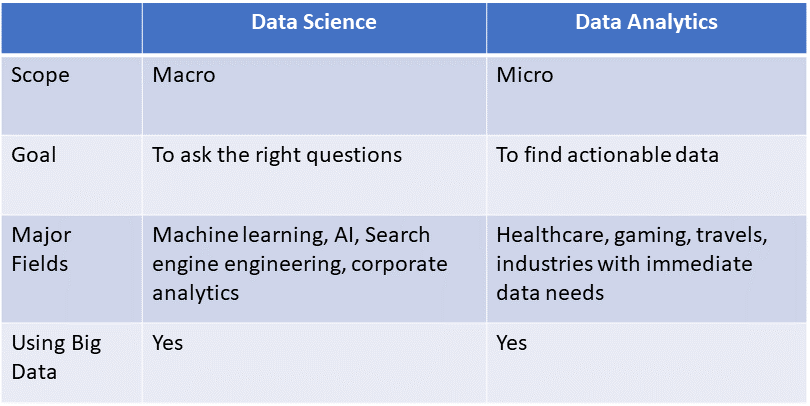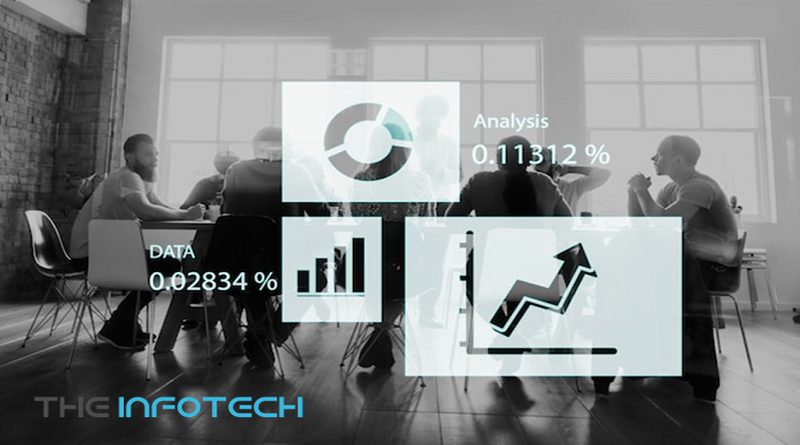Difference Between Data Science and Data Analytics
Big data has grown to be a significant part of the tech industry today because of the useful information and outcomes it can provide to businesses. However, to create such massive datasets, it is also necessary to comprehend them and have the required tools available to sort through them and find the relevant data. Data science and analytics have transitioned from being mostly confined to academics to being essential components of Business Intelligence and big data analytics technologies to better understand huge data.
Differentiating between data analytics and data science can be challenging, though. Even though they are connected, the two produce different outcomes and go different paths. Understanding what each one brings to the table and how each is different is crucial if you need to analyse the data that your company is creating. We dissect both categories, consider their variations, and highlight the value they provide to aid you in optimising your big data analytics.
Data Science –
Data science is an interdisciplinary field to extract useful information from massive quantities of unstructured and structured data. The focus of the field is mostly on discovering solutions to mysteries. To find solutions to problems that haven’t yet been thought of, data science specialists employ a variety of methodologies, combining computer science, predictive analytics, statistics, and machine learning to analyse vast datasets.
Data scientists are more concerned with finding the proper question to ask than they are with obtaining precise answers. Their major purpose is to pose questions and identify potential research areas. Experts achieve this by foreseeing prospective trends, investigating a variety of disjointed data sources, and developing more effective information analysis techniques.
Data Analytics –
The main goal of data analytics is to handle and statistically analyse existing datasets. To find solutions to today’s challenges, analysts focus on developing techniques to collect, organise, and process data. They also consider the most effective approach to convey this data. To put it more plainly, the goal of data analytics is to find solutions to situations for which we are aware that we lack the necessary information. More importantly, it’s predicated on delivering outcomes that can result in right away betterment.
Additionally, there are a few distinct disciplines of general statistics and analysis known as “data analytics” that aid in combining various data sources, identifying correlations, and streamlining the outcomes.
What Is the Difference?
Although the terms are frequently used interchangeably, data science and big data analytics are distinct fields, with the scope being the primary distinction. A group of disciplines that are used to mine massive datasets are collectively referred to as data science. A more specialised form of this is provided by data analytics software, which can even be regarded as a component of the overall procedure. The goal of analytics is to produce quickly usable actionable insights based on current inquiries.

The issue of exploration represents yet another fundamental distinction between the two disciplines. The focus of data science is on uncovering insights by sifting through enormous databases, frequently in an unstructured manner. Focused data analysis that has questions that need to be answered based on the data already available is more effective. Big data analytics prioritises finding answers to questions that have already been posed, whereas data science generates larger insights that focus on which questions should be addressed.
Furthermore, data science is more interested in posing questions than in providing definitive answers. The field is concentrated on discovering more effective methods for data analysis and modelling, as well as identifying potential trends based on current data.
Data Science vs Data Analytics — The Skills
Data Analytics —
Knowledge of Intermediate Statistics and excellent problem-solving skills along with
- Data manipulation skills in Excel and SQL databases.
- Working knowledge of BI tools like Power BI.
- Understanding of statistics software like Python, R, or SAS
Although an engineering degree is not required to become a data analyst, it is a distinct advantage to be proficient in statistics, databases, modelling, and predictive analytics.
Data Science —
Advanced statistics, programming, predictive modelling, machine learning, math
- Expertise with big data instruments like Hadoop and Spark
- Knowledge of Cassandra and MongoDB, as well as SQL and NoSQL databases
- Knowledge of data visualisation programmes like Tableau, D3.js, and QlikView.
- Programming expertise in languages like Python, R, and Scala.




